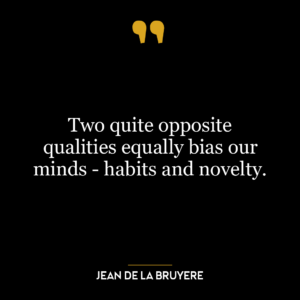This quote suggests that a mind that is weak or impaired by negativity tends to fear what it does not know or understand. It highlights the human tendency to feel uncomfortable or threatened by unfamiliar situations, ideas, or people. This fear often stems from a lack of understanding or experience, leading to preconceived notions or biases. The quote emphasizes the importance of mental strength and openness in overcoming these fears.
In terms of depth, the quote might be suggesting that fear of the unfamiliar is not just a symptom of a weak mind, but could also be the cause of mental stagnation and deterioration. The ‘disease’ Seneca refers to might be a metaphor for a closed mindset that resists change and growth. It could be a reminder that constant learning and embracing new experiences are essential for mental health and personal development.
Applying this idea to the contemporary world, it can be seen in various societal issues, such as xenophobia, racism, or resistance to technological advancements. These fears are often based on unfamiliarity and a lack of understanding. By embracing diversity and continuous learning, societies can overcome these fears and progress.
In personal development, this quote may serve as a reminder to step out of one’s comfort zone and embrace new experiences. It encourages individuals to challenge their fears and biases, and to cultivate a mindset of curiosity and openness. This can lead to personal growth, improved mental resilience, and a richer, more fulfilling life. It is through facing the unfamiliar that we learn, grow, and strengthen our minds.













